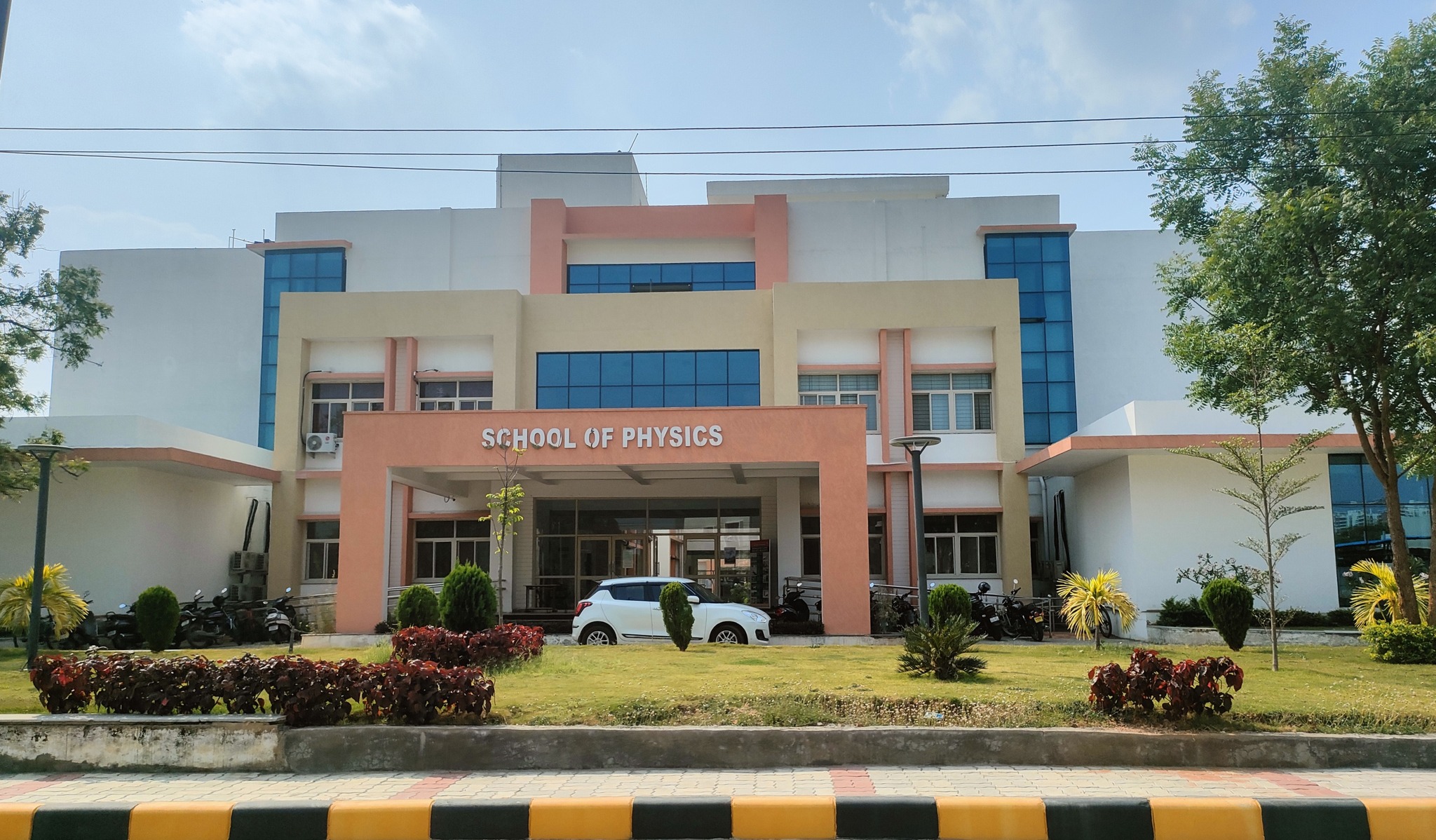The School of Physics has developed high-quality teaching programmes at the Integrated M.Sc., M.Sc., and Ph.D. levels with a student-teacher ratio that is favorable for individual attention.
About School of Physics

School of Physics is one of the first schools of study to be established in University of Hyderabad in 1977. The School of Physics is a center of excellence for multidisciplinary and interfacial research and teaching activities in diverse fields ranging from nanosciences and cold atoms to astrophysics and cosmology, photonics, quantum field theory, spintronics, particle physics and complex systems. The school is a recipient of a number of awards and recognitions. Notable among them are the Center for Advanced Study (CAS), and Networking Resource Centre (NRC) of UGC, selected as one of the five founding centres for the Theoretical Physics Seminar Circuit (TPSC) and the recipient of Fund for Improvement of Science and Technology (FIST) infrastructure scheme of DST, and is acknowledged as a Centre of Excellence by the Third World Academy of Sciences, Trieste, Italy.